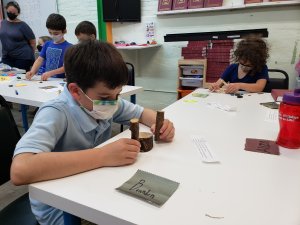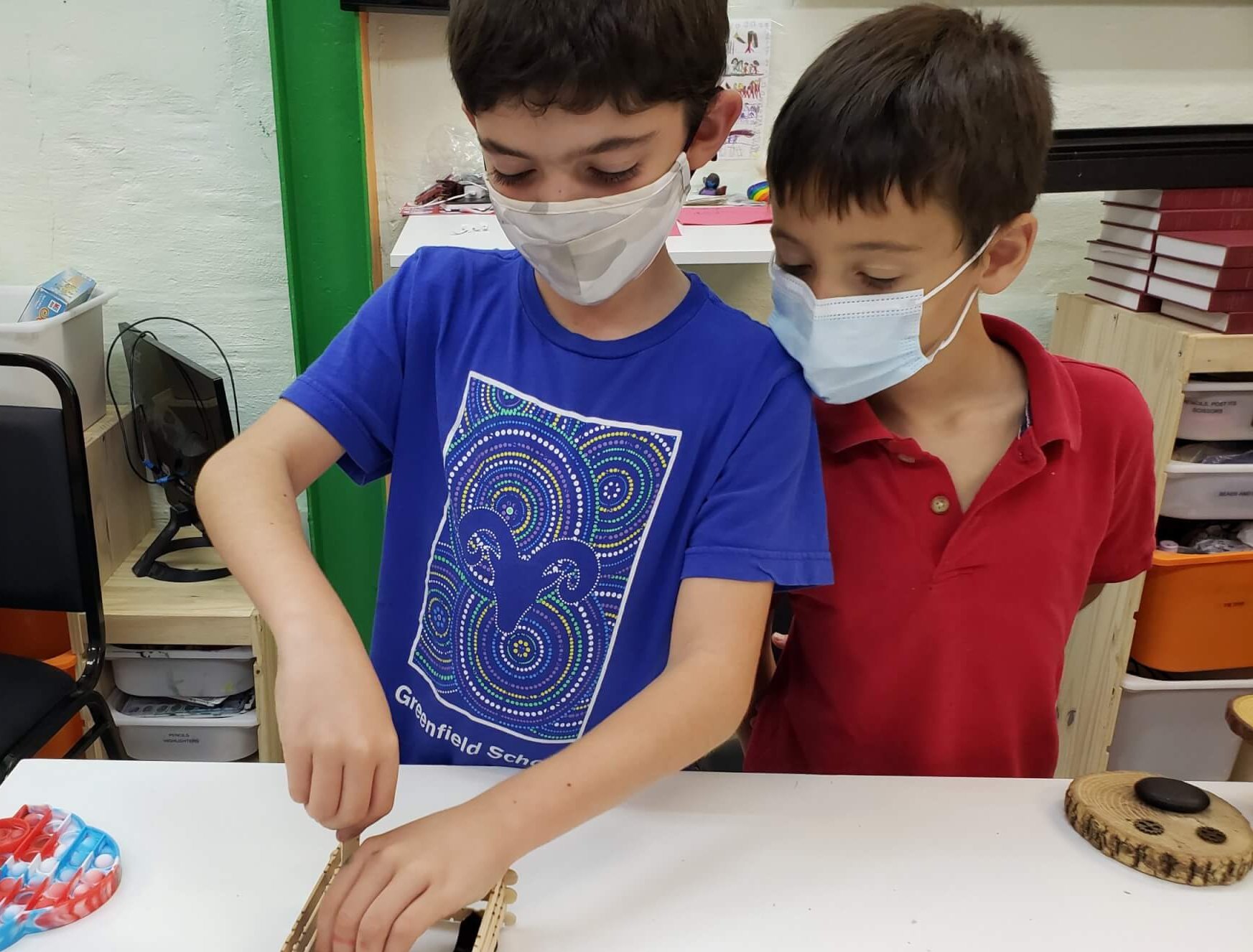
This week, we reflected on how the torah may guide our emotions and practiced fixing our mistakes by going over the steps on how to ask forgiveness and how to be thoughtful as we tell people about what upset us.
On Monday we read this set of rules from the torah: “ You will not hate your sibling in your heart. Gently and kindly scold or correct your relatives, but don’t take on khet (guilt or mistakes) because of them. You will not take vengeance or hold a grudge against the people in your country or nation. Ve’ahavta (love) your fellow as yourself: I am God.” (Leviticus 19:17-18)
Garinim had a mixed reaction to the rules presented in the text. Generally they seemed like a good idea to follow. One kiddo pointed out, though, that “sometimes my brother does stuff that I don’t like.” Another said that he sometimes feels “good and not good on the same day.” So while the Garinim liked the ideas presented in this set of rules, we also thought they might be tough to follow all the time.
On Tuesday, we explored some feelings that might lead a person to do something like seek revenge or hold a grudge.
What feelings do you think might lead to those things:
- Anger
- Frustration
- Jealousy
We also talked about what we can do to move through some big negative emotions to get back to a calm place on the other side:
- If you’re feeling sad, you can eat cookies.
- Get hugs!
- Talk about it with someone.
- I would try to help someone feel better by telling them that I love them.
- Try thinking about something fun or happy that’s happening.
- When I’m angry I want to scream so loud it’ll knock down the house.
Sometimes big upset feelings with ourselves and with others come up when we make mistakes. Since Yom Kippur is this week, a time when Jewish people reflect on mistakes and how to do better in the future, we reflected on mistakes that we’ve made. We also started coming up with a plan for how to handle mistakes and the conflict they might cause in our classroom. Here are some of our ideas:
- Ask a teacher for help
- Offer hugs if someone is upset
- Work together to make a plan for next time
- Take turns if two people want to use the same thing
We made a plan for converting one end of the Pinat Shalom (Peace Corner) in our classroom into a spot specifically designed for resolving conflicts. We brainstormed some ideas of what could go in that zone to help us work through our disagreements and make good choices:
- Pictures on the wall of people making good choices and not-so-good choices categorized with a big “thumbs up” or a “thumbs down”.
- Fidgets so we can calm down and focus on the conversation.
- A timer to make sure each person has a chance to talk and a chance to listen.
This week, Shorashim talked about how we can love our neighbor, even when our neighbor is not being kind to us. Kids raised times when it had been difficult for them or a family member to feel love toward a neighbor, but observed that just like anyone else we love, we can be angry at someone in our community and still respect our anger or other feelings from a place of love. We brainstormed different tactics like running in circles to let off steam, finding some space away from our neighbor, or trying to do acts of kindness to model how we want our relationship with our neighbor to be.
Then we made a giant card to welcome our new neighbors at Makom Community in South Philly.
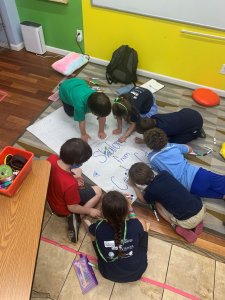
We also discussed the act of apologizing, and when it is and isn’t enough. We considered how to express to someone that they hurt your feelings, what it can look like to give/receive an apology, and what it can look like to show love and kindness to one another. Kid’s ideas centered on clear and direct communication:
- Calmly telling someone that you feel hurt
- Checking in to be sure another person is okay
- Telling another that they are forgiven
- Hugs
- Gifts
- Giving space/walking away when needed
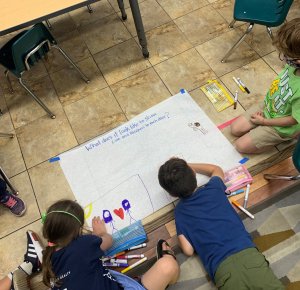
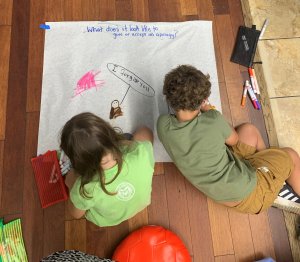
This week, Nitzanim searched in their backpacks and to find one item that makes them feel loved and one that helps them show love. Some kiddos pulled out their lunch boxes that were made by their parents as items that make them feel loved. Other items included favorite books and a library card. We then went over this text from the Torah: “ You will not hate your sibling in your heart. Gently and kindly scold or correct your relatives, but don’t take on khet (guilt or mistakes) because of them. You will not take vengeance or hold a grudge against the people in your country or nation. Ve’ahavta (love) your fellow as yourself: I am God.” (Leviticus 19:17-18) We came up with our own definitions of: who is a neighbor? Who is a sibling? And how we show love to these people who take different roles in our lives.
Some Nitzanim insights:
- Neighbors can be someone who is close to you physically or mentally
- Neighbors can be family
- You can create your own family, or “chosen family”
- Even if you fight with your siblings you still love them
- Helping people in trouble is a way to show love
 This kiddo crafts a courtroom scene, imagining a midrash where God passes judgement on those who hold grudges against their neighbors. In the back, another kiddo is creating a depiction of “loving your neighbor”.
This kiddo crafts a courtroom scene, imagining a midrash where God passes judgement on those who hold grudges against their neighbors. In the back, another kiddo is creating a depiction of “loving your neighbor”.
These kiddos are so thoughtful and full of insight! We can’t wait to see what next week has in store!

